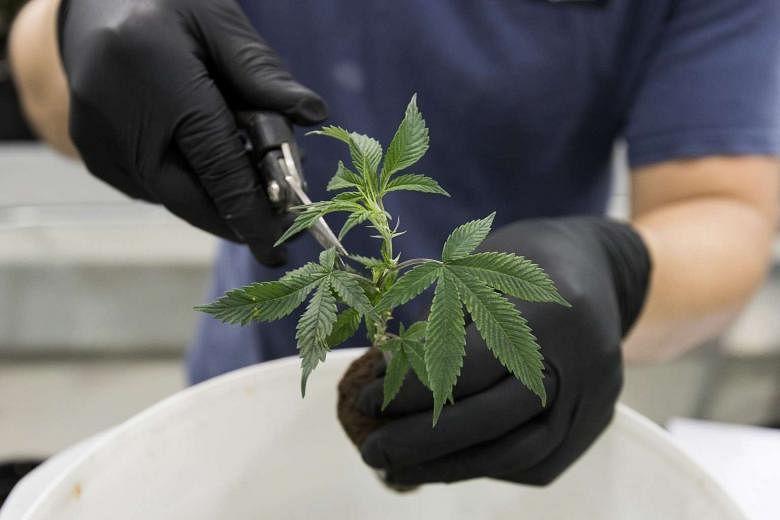OTTAWA (REUTERS) - The Canadian government should regulate the production of cannabis when it is legalised for recreational use and require plain packaging for such products, an official panel recommended on Tuesday (Dec13), a potential setback to growers who hoped to build brands.
The task force, which was formed by the government earlier this year and whose recommendations are not binding, said the provinces should be allowed to determine how cannabis is sold, which should be done both through dedicated storefronts and a mail order system.
Prime Minister Justin Trudeau's Liberal government made legalising marijuana a part of its successful election campaign last year and will introduce legislation in the spring of 2017. Medical marijuana is already legal in Canada.
On the whole, the report was positive for the existing companies that currently produce and sell medical marijuana, analysts said, with a lower-than-expected age limit of 18 for buyers and the allowance of some forms of edibles, which have been popular in places such as Colorado where marijuana is already legal.
Still, the panel recommended that plain packaging be required, while restrictions to advertising should be put in place similar to those currently on tobacco products.
"That's where the downside is for some of these licensed producers that had been hoping to advertise and really develop brands," said Jason Zandberg, an analyst who covers the industry for PI Financial.
Canopy Growth, which has a C$1.2 billion (S$1,303 million) market capitalisation on the main TSX exchange, was up 3.9 per cent at C$10.39, after initially jumping as much as 8 per cent.
Producer and seller Aphria Inc soared as much as 10 percent but similarly trimmed its gains and was up 3.6 percent at C$5.25.
Cannabis production should be regulated by the federal government, with licensing and production controls used to ensure a competitive system that includes small producers, the panel said, suggesting the door was open for new producers to get into the burgeoning sector.
There are currently 36 producers that have received a license to grow and sell marijuana under the medical framework, according to Health Canada. The panel recommended that Canada maintain a separate system for medical marijuana.
Whether storefronts operate through a government-run model, the way some alcohol is sold in Canada, or through private stores should be left up to the provinces, the report recommended.

